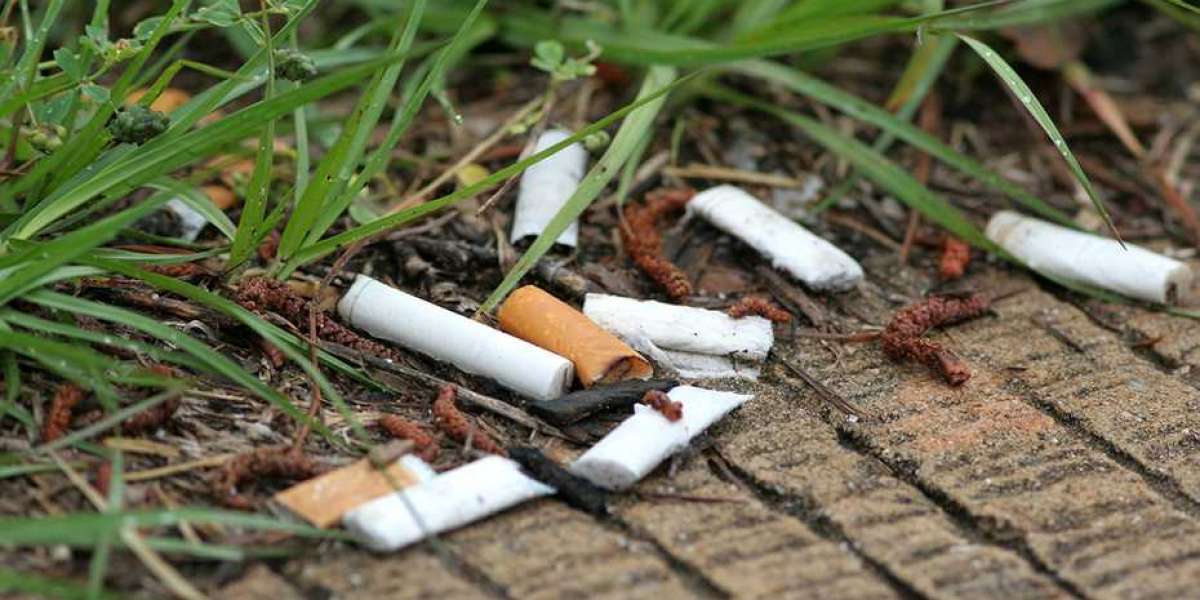The tobacco business across the world generates huge profits. However, it also battles considerable threats to its sustainability. These threats are catching people's attention more and more. For instance, growing and making tobacco harms the environment. It also causes social problems. These include health issues and exploitation of workers. Everyone's watching how the tobacco industry handles these worries. This article takes a close look at what's happening. It will be really intriguing for investors, especially those who have a stake in tobacco companies.
Environmental Challenges in the Tobacco Industry
Tobacco Cultivation and Deforestation
Tobacco farming needs a lot of resources. Many times, big parts of forests are cleared to grow these crops. This leads to a lot of deforestation, especially in poorer countries where there isn't much control. The want for wood to dry tobacco leaves makes it even worse. This causes loss of habitats and fewer varieties of plants and animals.
Soil Degradation and Water Use
Tobacco growing needs lots of water and might hurt the soil's goodness. If you grow tobacco non-stop, it takes away the soil's strength, making the land less able to grow things well. Too many fertilizers and bug killers can also make the soil dirty and harm our environment in the long run.
Carbon Emissions and Pollution in Tobacco Manufacturing
Producing tobacco goods, especially cigarettes, adds to global warming. The high-energy process of treating tobacco leaves, along with moving and packing the goods, boosts the trade's carbon impact. Furthermore, cigarette remains are a major source of plastic litter, since the filters don't break down and frequently litter our oceans, rivers, and dumps.
Social Impacts of the Tobacco Industry
Labor Exploitation in Tobacco Farming
Tobacco businesses are confronting a crucial social issue – labor abuse, especially in less developed countries where tobacco farming is significant. Instances of child labor are common in certain areas where tobacco is grown. These kids frequently come into contact with damaging chemicals and suffer from severe work circumstances. These facts prompt questions about the ethical actions of the industry and underline the demand for tougher rules and improved supervision.
Health Implications for Consumers and Farmers
Everyone knows smoking can hurt your health. But did you know tobacco farmers are at risk too? They often get "Green Tobacco Sickness". This happens when nicotine gets into their bodies through their skin. They touch wet tobacco leaves and get sick. This raises questions about how the industry looks after its workers.
Corporate Social Responsibility in the Tobacco Industry
Tobacco Companies and CSR Initiatives
With rising critiques, certain tobacco firms have turned to actions of corporate social responsibility (CSR). Their aim is to lessen their effect on the environment and to better the conditions for laborers. These causes include lowering carbon output, promoting farming that'll last, and fostering educational opportunities in agricultural areas. But some folks contend that these actions don't quite cut it. They believe it's more about creating a good image than pursuing real change.
The Role of Investors in Promoting Sustainability
Investors play a crucial role in pushing tobacco companies toward more sustainable practices. Ethical investment strategies that prioritize companies with strong sustainability credentials are gaining popularity. Investors in best tobacco stocks in India
can also influence corporate behavior by encouraging transparency and accountability in environmental and social performance.
Addressing the Environmental Impact of Tobacco Products
Sustainable Alternatives and Innovation
Several tobacco firms are looking into greener options like dissolvable filters and earth-friendly wrappers. Such changes are designed to cut down the harmful effects of tobacco goods on our world, especially regarding tossed cigarette endings. Nonetheless, the switch to these green solutions has been a leisurely process, and we're still waiting to see how well they work.
The Rise of E-cigarettes and Heated Tobacco Products
People are realizing traditional cigarettes harm the environment and health. So, they're choosing different options, like e-cigarettes and heated tobacco items (HTPs). These items are promoted as better and more green than old cigarettes. But, they have their own problems too, such as throwing away electronics and possible health issues later on.
The Future of Sustainability in the Tobacco Industry
Regulatory Pressure and Environmental Laws
Environment-focussed groups and worldwide bodies are increasing demands on cigarettes to be more eco-friendly. In certain areas, these companies have to follow tougher green laws. This especially applies to how they handle waste and the pollutants they release. As the world pays more attention to saving the planet, we expect these rules to get even more strict.
Impact on Investment in Tobacco Stocks
Tobacco companies are facing tough questions about sustainability. This gets investors thinking too. The world is going green. If companies don't keep up, they could fall behind. Long-term investors should pay attention. They should look at how tobacco companies handle environmental and social issues. They should see if these companies really care about sustainability.
How the Industry is Adapting to the Shift Toward Sustainability
Though the tobacco sector has lagged in meeting the rising call for eco-consciousness, some firms are moving forward. They're boosting their research and development efforts, and partnering with sustainability gurus. These actions are aiding them to introduce novel ideas. These include green packaging, zero-e mission manufacturing, and just work conditions.
Risks and Challenges for Investors
Greenwashing in the Tobacco Industry
Investors face a significant hazard. It's greenwashing. That's when businesses oversell or lie about how eco-friendly they are. Misleading? Yes! They paint a picture that they are greener than in reality. This can trick investors. It makes them believe a firm cares more for the environment than it does. What's the harm? Financial loss and ethical dilemmas can occur.
Balancing Profitability with Sustainability
While sustainability is becoming increasingly important, the tobacco industry remains highly profitable. Investors face the challenge of balancing the need for ethical investments with the desire for financial returns. This is particularly true in emerging markets where tobacco companies continue to experience strong demand.
Opportunities for Ethical Investment
Yes, the hurdles exist, but they are not without silver linings for moral investing within the tobacco field. Investors have the chance to back firms that show a genuine drive to better their impact on society and the environment. By pushing for openness, keeping these organizations in check, and giving weight to lasting growth, investors can indeed contribute to steering the sector in a positive direction.
Conclusion
The tobacco business is grappling with notable sustainability problems, encompassing ecological harm resulting from deforestation and contamination, and societal concerns like workers' rights abuse and health hazards. While certain firms are tackling these problems with CSR endeavors and creativity, there is a pressing need for further advancement to truly achieve sustainability. For investors, particularly those surveying the top tobacco stocks in India, it's critical to evaluate both the monetary benefits and the ethical consequences of funding a sector that's facing rising inspections due to its environmental and societal influences.


